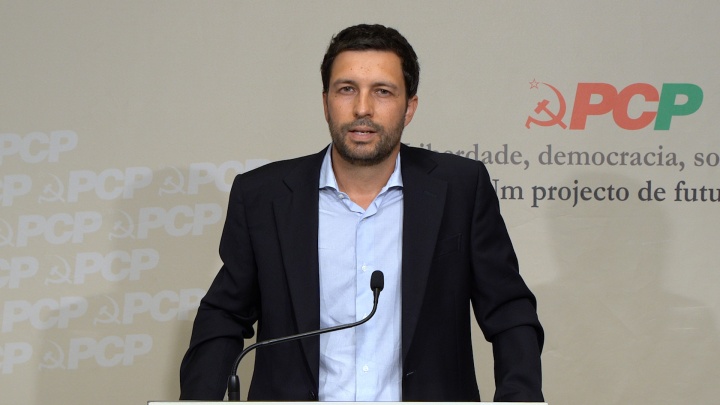1. More than the deep fractures and contradictions that run through the European Union, the European Council meeting highlighted the very nature of an integration process that intrinsically generates inequalities, divergences and asymmetries, in which capitalist competition in the single market prevails over any prospect of solidarity between States, which in practice is confirmed to be non-existent.
As foreseen and as the PCP previously pointed out, the discussion at the European Council was totally conditioned and guided by the interests of the main beneficiaries of the integration process.
2. It is important to bear in mind that the proposal brought to this European Council by the European Commission, in turn transposed from the proposal prepared by Germany and France, contained from the outset negative aspects for Portugal:
- The cut in funds of the Multiannual Financial Framework 2021-2027, to the detriment of the necessary strengthening of financial means to ensure effective economic and social convergence between different countries;
- The increase in the national contribution to the EU budget, while opening the door to further cuts in contributions from countries that benefit most from the European Union, further jeopardising an effective redistributive function of the budget;
- The so-called Recovery Fund, in addition to being insufficient in view of the existing investment needs, represents, both in its loan component and in its “grant” component, an advance of funds that will be paid later, either by repaying what was borrowed, or by reducing future budget transfers, starting in 2028.
3. The European Council conclusions, initially defined by Germany and France and subsequently accepting pressures and impositions from other of the main beneficiaries of the single market and the euro, determine even more unfavourable conditions for Portugal.
On the one hand, a more significant cut in the Multiannual Financial Framework 2021-2027 is confirmed, with implications whose scope still needs to be known in greater detail, but which already represents a cut in funds for cohesion and agriculture, which is all the more serious since this Framework (and not the so-called Emergency Fund) will be a reference for the future.
Furthermore, while Portugal is expected to increase its contribution to the EU budget, other countries - which are among the main beneficiaries of integration - will have guaranteed a substantial increase in the discount of their respective contributions, from which they already benefited. This is the case of the Netherlands, Austria, Sweden and Denmark, while Germany will maintain the discount it already enjoyed, even more significant in the current context.
On the other hand, the so-called Recovery Fund is reduced, particularly in its “grants” component, from 500 to 390 billion. Amounts even more distant from what the reality and investment needs would require. The weight of the loan component will increase, which will represent a boost for further indebtedness by States, particularly harmful to countries, such as Portugal, which already face higher levels of indebtedness.
At the same time, mechanisms are created and aggravated which entail increased EU interference in the implementation of investment options and other sovereign decisions of Member States. This is an unacceptable additional pressure to link the instruments now approved - Budget and Recovery Fund - to the imposition of the EU's neoliberal prescription, which is part of the ambitious deepening of “structural reforms”, an example of which is the attack on labour rights and on public social security systems.
4. Without disguising amounts that, although insufficient, represent a circumstantial increase in the means available, the PCP considers it essential that:
- The funds to be received by Portugal under the Recovery Fund are made available in the form of grants ("non-repayable" funds), refusing to have in exchange any cuts in transfers from the EU to Portugal under the cohesion policy - structural and investment funds - whether in the present or in future financial frameworks, and acting, on the contrary, to strengthen these funds;
- The investment options at the national level are aligned with the real needs of the Portuguese people and the country, refusing forms of economic and political conditionality that intend to interfere in the sovereign decisions of the States, namely in terms of options, programming and execution of funds;
- The liberation of the country from the constraints that limit and condition the mobilisation of its own national resources, such as the stability pact and legislation on economic governance and the European semester;
- The adoption of measures to ensure that the funds to be mobilised in the coming years are placed at the service of the valorisation of work and workers, the defence and promotion of national production, the recovery for the public sector of the basic and strategic sectors of the economy, the guarantee of public administration and services at the service of the people and the country, of the sovereign development of Portugal.
5. In the current context, in which the PS government displays its option to submit to the interests of the EU to the detriment of the position of defending the national interest, as required, the recovery of essential sovereignty instruments is particularly important, namely in the economic and monetary field, a structuring factor of an alternative, patriotic and left-wing policy, which the country lacks and which the PCP proposes.
Only the affirmation of a sovereign policy, which makes the interests of Portuguese workers and people prevail over the impositions and constraints emanating from the EU, can adequately respond to the needs that the country faces.
